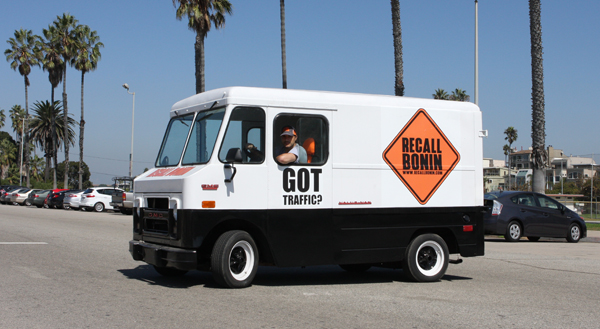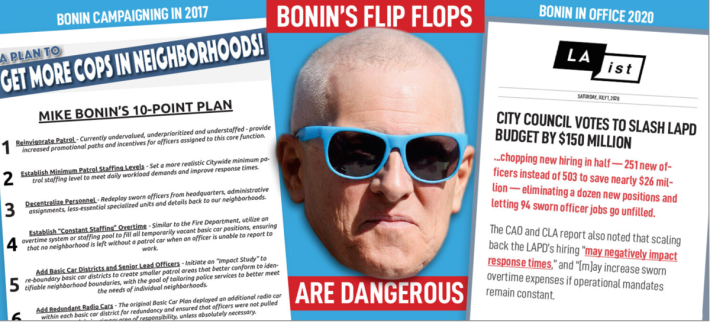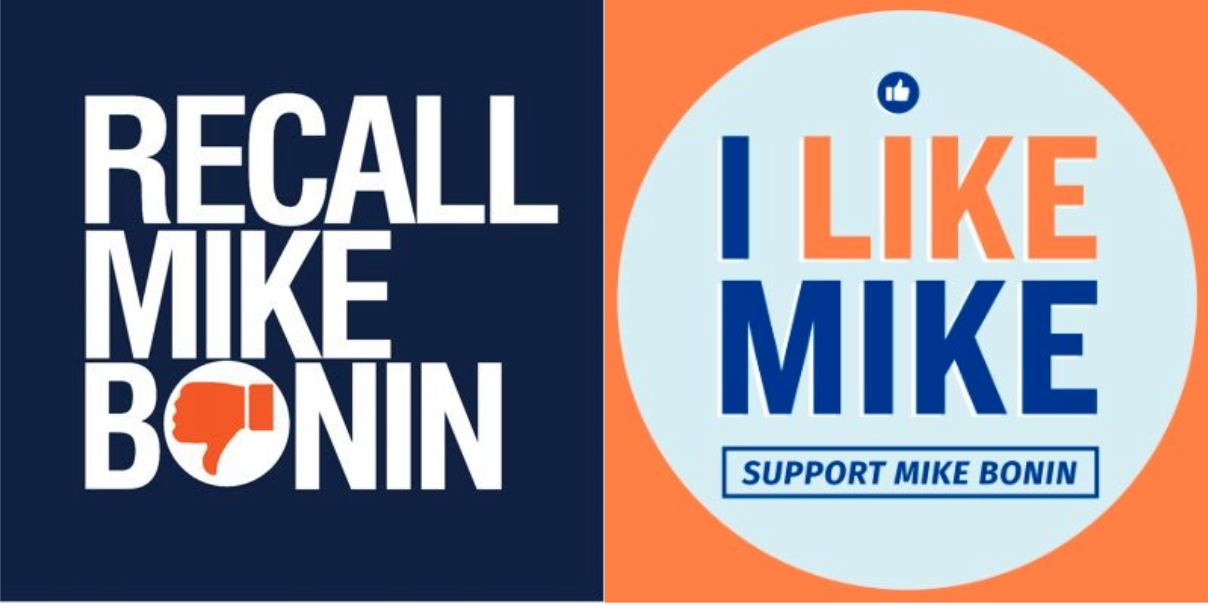The 2022 Los Angeles City elections promise to be more spirited and contested than the usual affairs. At the top of the ticket for mayor is a race that features Congressmember Karen Bass, at least three City Councilmembers, the City Attorney, several others, with more candidates possibly declaring soon. But there's also going to be fireworks in the City Council elections where a squad of left-of-center candidates are challenging the status quo and the status quo isn't going to go down without a fight.
One opening salvo in that battle came on Wednesday night of last week, when a campaign to recall City Councilmember Mike Bonin, one of the most liberal members of the Council, submitted 39,188 signatures to the City Clerk for validation. The recall needs just 27,317 of those signatures to be validated to reach the threshold of 15 percent of registered voters to force the recall election. Signatures can be invalidated for a number of reasons including illegible information on the form, registration from outside of the City Council District, or other incorrect information. It's uncommon but not unheard of for up to 1/3 of signatures to be invalidated in recall efforts, but since over 30% of the 39,188 would need to be invalidated both the recall and Bonin's campaigns are moving forward assuming that there will be a recall this spring.
The City Clerk estimates the recall election, if the signatures are verified, would occur in May. The date of the city's primary election, which includes Mike Bonin's re-election campaign, is June 7, 2022.

The main issue in the election is not bike lanes as it was in the failed recall attempt of Bonin in 2017, but his and the city's response to the homelessness crisis. Proponents of the recall point to large homeless encampments and increased crime in Bonin's westside city council district.
"In summary," reads one popular social media graphic created by the Recall Bonin campaign, "Councilmember Mike Bonin does not engage with the district and did not improve our quality of life or clean up our neighborhoods. Our streets have become de facto campgrounds, sanitation policies are failing, crime is rising and Mike Bonin remains unresponsive."
For Streetsblog readers, these accusations likely seem ridiculous. In addition to constantly taking a lead role in pushing for the city to invest more resources in long-term solutions to homelessness, Bonin has also pushed for the city to increase the number of voluntary cleanups at homeless encampments. After the city's stay-at-home order ended in June, Bonin's CD 11 has seen a handful of "encampment to home" programs at Westcester Park, Mar Vista Park and the Venice Boardwalk.

Recall proponents also blast Bonin for his stances on reducing funding for the LAPD so that funds can be redirected towards other services and that Bonin has resisted calls for "sweeping" or removing homeless encampments unless there is a place where those living at those camps can move to. For the first fifteen months of the pandemic, the City Council had banned these sweeps following the guidance of the Centers for Disease Control. When the Council lifted this ban and put a procedure in place to do targeted sweeps, Bonin did not take advantage of the new procedures to begin sweeps in his district unless housing has been identified for those that would be displaced from the encampment through the aforementioned encampment to home program.
The official campaign against the recall and other Bonin supporters have hit back, noting that much of the recall funding has been funneled through political action committees that don't have to list their donors and that a number of high-level staff members are politically-connected Republicans. The 2021 Campaign to Recall Mike Bonin has almost no crossover in leadership from the farcical campaign to recall him that never quite got off the ground; but that hasn't stopped Bonin from noting that this is the second attempt to recall him in less than one-term on the Council.
After the signatures were submitted last week, former and current elected officials and nearly a dozen progressive City Council candidates took to social media to voice support for Bonin and question the Recall. The Los Angeles Times also wrote a damning editorial that mocked both the timing and reasons for a recall.
Alex Fisch is the Mayor of Culver City
But Bonin supporters shouldn't look at this institutional support and not take the recall seriously. Recall proponents have shown a remarkable ability to swarm the posts of Bonin supporters if they voice support, can raise money (and hire both professional staff and foot soldiers such as the signature gatherers that were omnipresent at local stores for weeks) and have developed a sympathetic media eco-system with the newly created Westside Current bolstering criticisms created on local anti-homeless blogs.
But for now, the ball is in the hands of the City Clerk who has the arduous task of verifying the signatures on the recall petitions. Should that office validate 27,317 or more signatures, they will release a calendar of events leading up to the official recall that will include a chance for candidates to file their own petitions.
Should a majority of votes cast be to recall Bonin, then there are two possible outcomes. If the top vote getter gets more than 50% of the vote, they would become Councilmember shortly after the election. If not, then the top two vote getters would head to a runoff that would be occurring at the same time, although possibly not on the same dates, as the regular election. Either way, that person would only serve until January of 2023, unless that same person is elected in the regular election.






